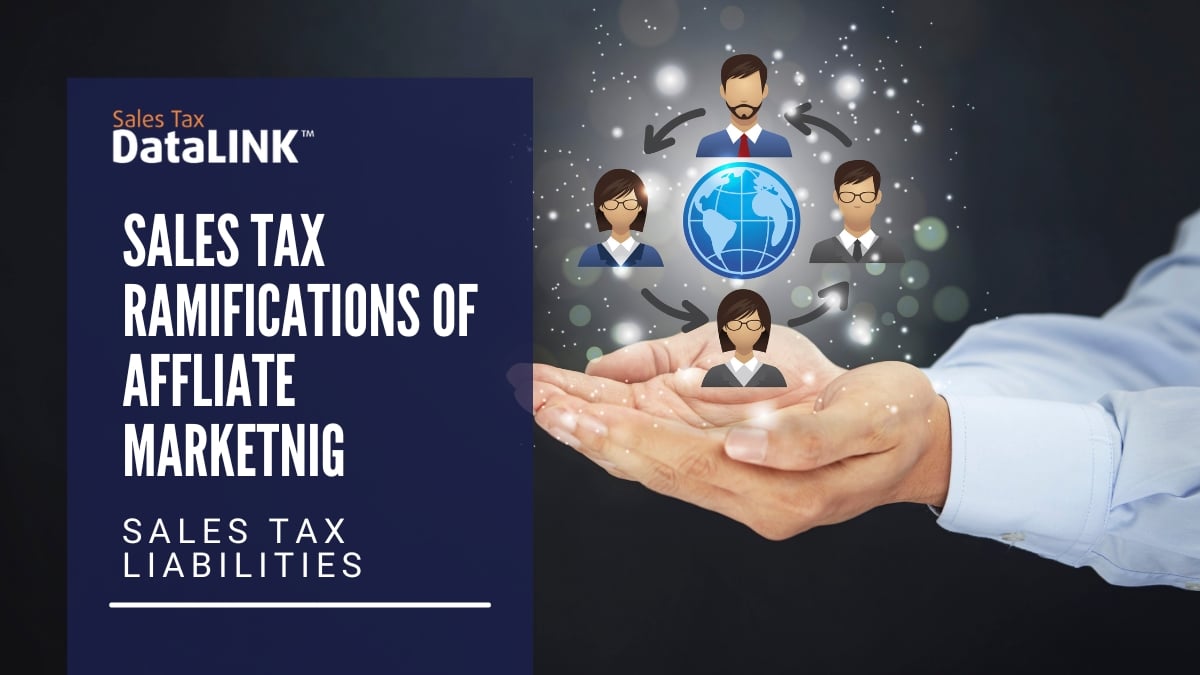The Impact of Affiliate Marketing on Sales Tax Liabilities
Affiliate marketing can be dangerous–from the point of view of sales tax, at least. Affiliate marketing is a system in which an individual gets a commission when consumers click through their website and make a purchase at another site. For example, Amazon has many affiliates who link to Amazon products from their blogs or social media accounts. When readers click through to Amazon and shop, the blogger or influencer receives a commission of a percentage of the purchase price.
Before the Wayfair decision, some states passed laws saying that having an affiliate in a state created a nexus for the purpose of sales tax. Just as having a warehouse in Arkansas would create physical nexus, having an affiliate marketer in Arkansas would create nexus.
Amazon responded to this law by cutting off all affiliates in Arkansas, and in every state which defined affiliates in this way, so the law did little for the state.
Now that companies may have economic nexus without physical nexus and most states require remotes sellers to collect and remit sales tax if they reach a certain economic threshold, the situation has changed.
Nonetheless, if you’ve been considering running an affiliate marketing program for your business, be sure you understand what it might do to your sales tax liabilities.
Sales Tax Liabilities From Affiliate Programs
Before you assume that your products or services are non-taxable and you don’t have to worry about sales tax, remember that every state makes its own rules about sales tax and they change all the time. While your goods or services might not be taxed in your state, they might be in another where you make sales. A change in laws regarding taxability can change your sales tax liabilities, even if you have no changes in your business model.
Suppose your products or services are taxable and your sales reach the threshold for economic nexus in a particular state. You will be required to collect sales tax on your sales in that state, whether or not you have affiliates there.
The complication arises when you do not reach the level of sales that establishes economic nexus, but you have an affiliate in that state. Some states still have laws defining affiliates as a trigger for physical nexus. Thus, you may have nexus in a state where you don’t have economic nexus or any other type of physical nexus. Arkansas is among the states that have repealed their affiliate nexus laws, but some states still have these laws on their books.
Still, affiliate marketing programs can be a valuable part of your marketing strategy. If an affiliate marketing program is a must for your business, how should you go about it?
Reducing Sales Tax Liabilities When Running Affiliate Programs
One business owner put it this way: “It’s not collecting sales tax that’s the hard part; paying taxes in the jurisdictions is an accounting nightmare.”
Adding affiliate marketing to your business plan adds yet another factor to sales tax compliance, which is already complex. It may provide a level of ROI that makes it the best decision for your company, in which case keeping track of the sales tax ramifications is part of the package. But it doesn’t have to be a nightmare.
Technology created the affiliate nexus problems we’re in now—and it can get us out too. Filing sales tax with jurisdictions can be done in just a few minutes for most businesses, no matter how small or large their company, with the right technology. Outsourcing can be the best and most affordable option for your company if in-house compliance is a burden.
Sales Tax DataLINK can help. Call 479-715-4275 and let us impress you.




